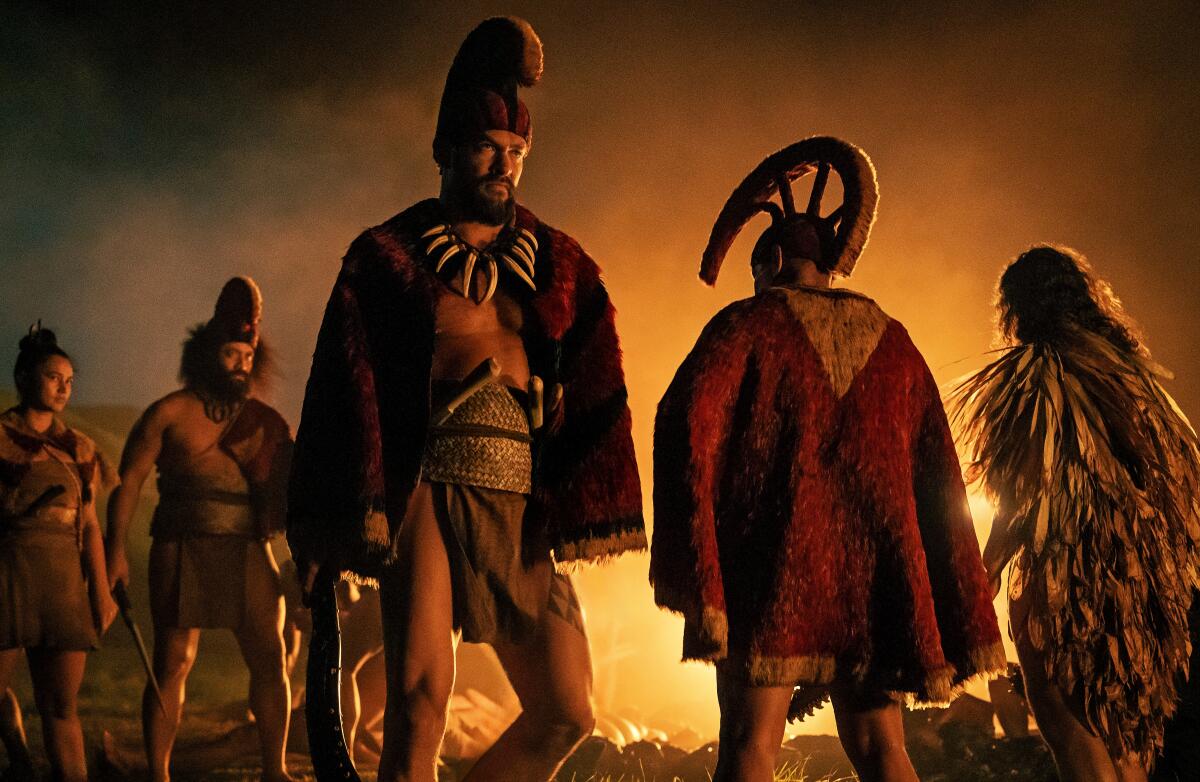Apple TV+ proudly presents ‘Chief of War,’ a powerful and meticulously crafted historical drama led by co-creator and star Jason Momoa. Premiering Friday, this series embarks on a captivating journey into precolonial Hawai’i, offering viewers an intimate look at the tumultuous late 18th century. It stands as a testament to Momoa’s deep personal connection to his heritage, transforming a passion project into a compelling narrative of war, love, and the intricate fabric of Hawaiian history.
The series meticulously recreates the geopolitical landscape of the Hawaiian islands as they stood on the precipice of European arrival. Against this vibrant backdrop, ‘Chief of War’ introduces Ka’iana, a formidable warrior whose story intertwines with the destinies of various island kingdoms. The show delves into the rich cultural tapestry of Hawai’i, showcasing its unique traditions and the complex relationships that defined this pivotal era before external influences profoundly reshaped its society.
Jason Momoa, born in Honolulu, brings an unparalleled authenticity to his role, stemming from his personal roots and extensive research. Having transitioned from roles in ‘Baywatch Hawaii’ and ‘Stargate Atlantis’ to embodying iconic characters like Aquaman, Momoa steps away from conventional genre fare to respectfully portray his ancestral origins. His commitment ensures that ‘Chief of War’ is not merely an entertaining spectacle but also a deeply resonant exploration of Indigenous culture and heritage.
Echoing the grandeur of epic fantasy series, ‘Chief of War’ masterfully navigates a complex world of warring factions and ambitious monarchs. The narrative, predominantly delivered in the Hawaiian language with subtitles, draws inevitable comparisons to ‘Game of Thrones’ and ‘The Lord of the Rings,’ particularly in its detailed world-building and intricate political maneuverings. Viewers are immersed in a saga where prophecy speaks of a king uniting fragmented island kingdoms, ending a cycle of endless war.
Central to the drama are compelling characters like Ka’ahumanu, a young Maui woman whose fate intertwines with Ka’iana’s, and Kamehameha, a figure whose inclination towards peace is tested by the realities of power. The series introduces formidable antagonists such as King Kahekili and Keoua, alongside rogue white sailors harboring their own dreams of conquest. These interactions drive the plot forward, highlighting the internal and external conflicts shaping the islands.
The arrival of European colonists introduces critical themes of cultural clash and exploitation. Ka’iana’s journey aboard a British sailing ship to distant lands like Alaska and the Spanish East Indies exposes him to new technologies, notably guns, and the English language. This narrative thread unflinchingly confronts the historical impact of ‘pale-skin’ colonizers on Indigenous populations, portraying the insidious nature of white racism and the struggle for survival and dignity in the face of exploitation.
Beyond its historical scope, ‘Chief of War’ is notably progressive in its portrayal of societal dynamics. Co-creators Momoa and Thomas Paʻa Sibbett have consciously injected a strain of anticipatory feminism, ensuring that women are not merely background figures but active, powerful participants with significant agency and wisdom. The series also seamlessly integrates gay characters, presenting their presence without overt comment, further enriching the show’s diverse and inclusive representation of its historical world.
Ultimately, ‘Chief of War’ stands as a groundbreaking historical drama, offering a profound and often overlooked chapter of Hawaiian history. It combines thrilling action with thoughtful introspection, delivering a narrative that is both entertaining and educational. Through compelling storytelling and powerful performances, particularly from Jason Momoa, the series invites audiences to witness a pivotal moment in time, where culture, conflict, and the human spirit converge amidst the breathtaking landscapes of ancient Hawai’i.






Leave a Reply